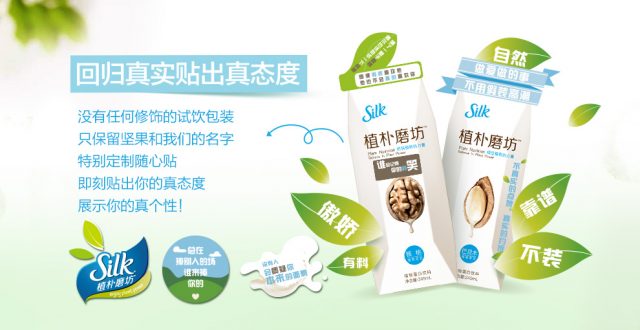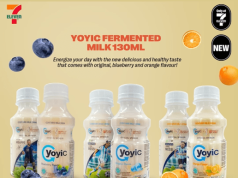Sales of plant-based protein drink such as soy, almond and coconut is rising in the US, Europe and in China as consumers look for non-dairy alternatives. Consumers are replacing their diet with dairy-free products primarily as a reaction to heath warnings about consuming too many dairy. Other factors include lactose intolerance and cow’s milk allergy.
In the UK, almond milk sales grew to 92 million litres in 2013, up 155% from 36mn litres in 2011. As a comparison, sales of regular milk grew just 3% over the same period.
In the US, refrigerated plant-based beverage registered the second highest CAGR of 16% between 2011 and 2013, while refrigerated organic milk and milk saw a respective 5% and -1% CAGR, according to Nielsen.
| Source: WhiteWave Food presentation – Nielsen data |
According to Mintel, products with ‘high protein’ claims (over 10g/20% of RDA) accounted for 28% of food and drink launches between August 2012 and July 2013.
In China, plant-based protein food (植物蛋白食品) is a growth segment. US-based WhiteWave Foods entered into a joint venture with China’s Mengniu in July 2014 to “access the Chinese market, one of the world’s largest consumer markets with a rapidly growing, multi-billion dollar nutritious products segment.”
According to WhiteWave, the market for soy milk, almond milk, walnut milk and coconut milk in China is worth more than USD 2 billion.
| WhiteWave Foods Barclays Back to School Conference Presentation September 4, 2014 |
The joint venture launched their new Silk products – almond and walnut at the end of 2014.
In China, Nestle’s Yinlu (银鹭) is the market leader in peanut milk, Hebei Yangyuan Zhihui (河北养元智汇) in walnut milk (market share: 80%), Yeshu Group in coconut milk Chengde LoLo in almond milk (market share: 90%). Sales of almond milk and walnut milk is concentrated in the northern region, while coconut milk is primarily in the southern region. Yangyuan’s Six Walnut drink is positioned as a drink for the brain, while newcomer Silk positioned itself as a US-origin natural drink.
In view of the growing popularity of plant-based protein drink, what would be the implication for Southeast Asia, particularly Malaysia? We will discuss this in the next edition.













